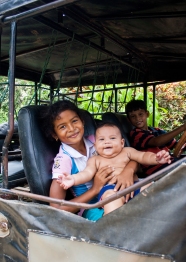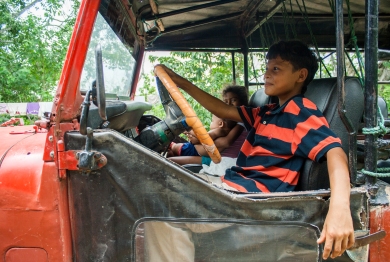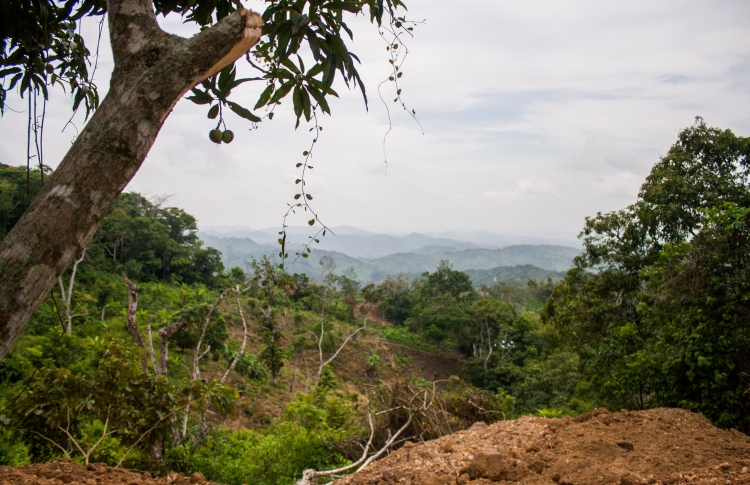
Anna Vogt is the MCC LACA Policy Analyst and Advocacy Support. This post was originally published on Anna’s personal blog.
I can’t stop thinking about a story Larisa told me at the end of November. I was about to leave on a work trip and the conflict in the Montes de Maria in the early 2000s was furthest thing from my mind, but I ended up carrying it with me through Central America and back.
On an interviewing trip with a historical memory project that weekend, Larisa and the group of jovenes ended up driving with a man, let’s call him Juan, a truck driver from the highest point in the Montes de Maria. His job is to ferry people back and forth, over impossibly bumpy roads, loaded down with sacks of corn and market items.
During a pause in the drive, Juan pulled a creased piece of paper out of his pocket. Over the years, he was rewritten it several times yet the information has stayed the same-a record of what started as a routine trip during the height of the violence. As he drove his passengers up the mountain, a paramilitary troop stopped his jeep and ordered his passengers to disembark. The commander ordered his soldiers to shoot them all, except for the driver. Juan’s paper is simple: the victims’ names, the date, those responsible, and his signature as a witness.
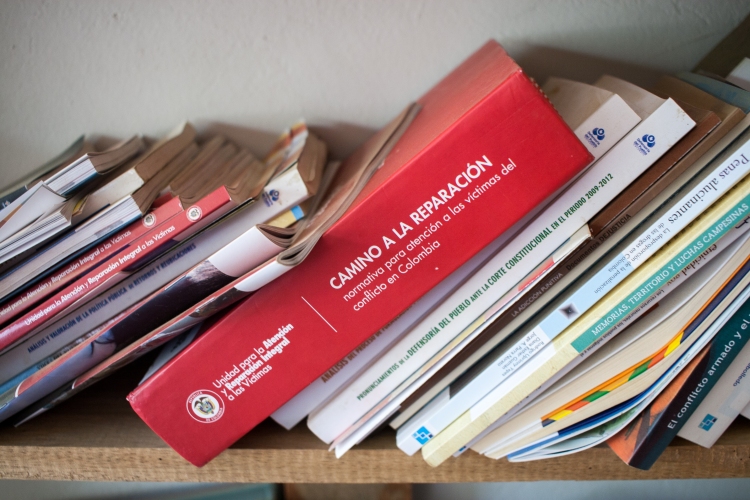
Today in Moment for Peace, a Wednesday space in the Mennonite Church, we were discussing the proposed victim’s accord when an incredibly angry man spoke up. As the presentation continued, he started arguing back, carefully pulling dog eared books and flyers from the Victim’s Unit. The leaflets were mixed with business cards and random tiny pieces of paper, neatly stored in a vinyl laptop case. For every theoretical point about the future for victims, he had a counterpoint, based on the lack of results he had received from standing in line for hours, trying to receive some sort of reparations or help as a conflict victim, displaced to Bogota. I don’t know what process he has actually gone through, but I do know that I have met countless people like him, not always angry, but frustrated and resigned to carrying their folders full of certificates and documents from line to line, meeting to meeting, not even sure which papers are the important ones that will finally guarantee results and recognition.
Besides the incredible amount of bravery, trauma and pain that all of these pieces of paper represents, they seems almost perversely comforting, in a way. This is what happened, written out and remembered. This is a certification in the National Victim’s Registry. This is a cousin, a father, a disappeared mother. This is what it means to have lived out a conflict.
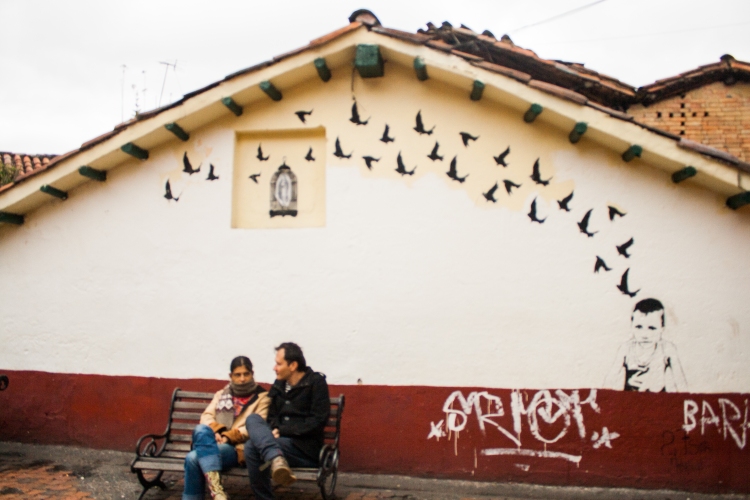
Most people I know here in the city don’t carry around a piece of creased paper in their pockets. For the majority, in my middle class neighbourhood at least, the Colombian conflict is a distorted image on the news or the remembrance of a family member’s distant journey from the campo to the city. We experience things in fragments: a snatch of conversation overheard on the bus, a testimony at a forum, a woman asking for money in front of the grocery store, or anger on Wednesdays.
A couple weeks ago, Rosamilia Salamanca, a feminist academic and activist gave us a context analysis lecture at Justapaz, based on the peace talks and challenges facing a post conflict scenario. In between reflecting on truth commissions and climate change, she burst into tears about recent news around the government uncovering of a giant mass grave near Medellin. This, she said, is what we now have to bear if we want to end this current phase of the conflict. We will really discover the truth about who we are as a country and the atrocities that we have done to one another. In order to really move forward, we in the middle class must also carry the realities and responsibilities of the past and the present.
Perhaps it is only when we are all able to share those burdens, reading names out loud, opening offices and cheque books to victims, and accepting responsibility for roots issues of wealth and land, that those tiny pieces of papers can finally be released.
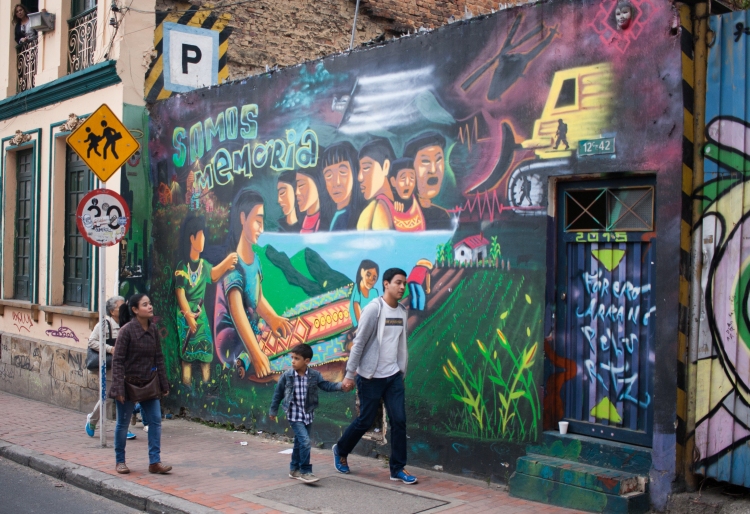
I keep thinking about memory and what I carry with me. My life has been a relatively easy one, free from witnessing armed conflict and abuse, living in white middle class Canada. Yet just because I am not a firsthand witness, doesn’t mean that I am not connected to those who carry other experiences with them daily. I think of injustice in Canada; Maclean’s latest investigation in structural racism in the justice system is part of what it means it be Canadian, alongside maple syrup and welcoming in refugees. It is my turn to carry that knowledge with me.
I am also realizing how much living here, surrounded by Colombian stories, has impacted me personally.
Peace is complicated and so much more than signing a paper and declaring a truce, even as we draw closer everyday to a final accord. The theme is both structural and personal, traumatic and judicial. I am trying to be balanced, to be objective, to be realistic about Colombia’s future and my own as a person who loves this place. I am trying so hard not be hopeful, as to not be disappointed. Violence will not cease. Reparations will not be sufficient.
I won’t, however, stop believing in the future because otherwise there is no way I can bear these testimonies and join in strategic work for change. I am not objective. Let me be clear: I am not a victim. Yet in a very small way, these stories are now woven in with mine, no matter where I go. Out of respect for those memories and in recognition of the everyday bravery of truck drivers, the angry, and those who are learning the truth, I cannot be hopeless.

